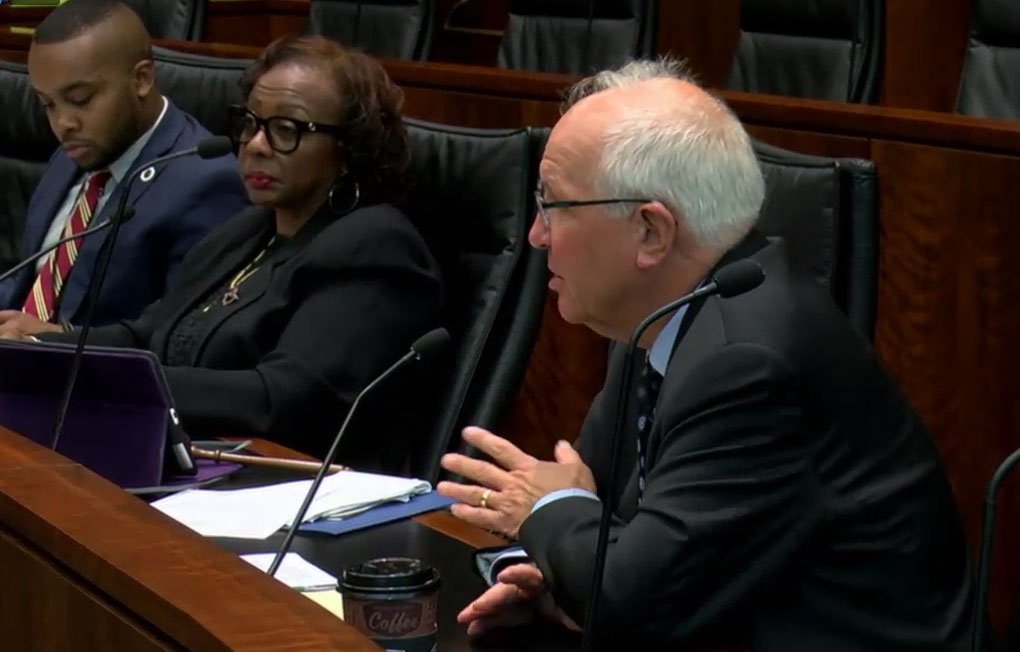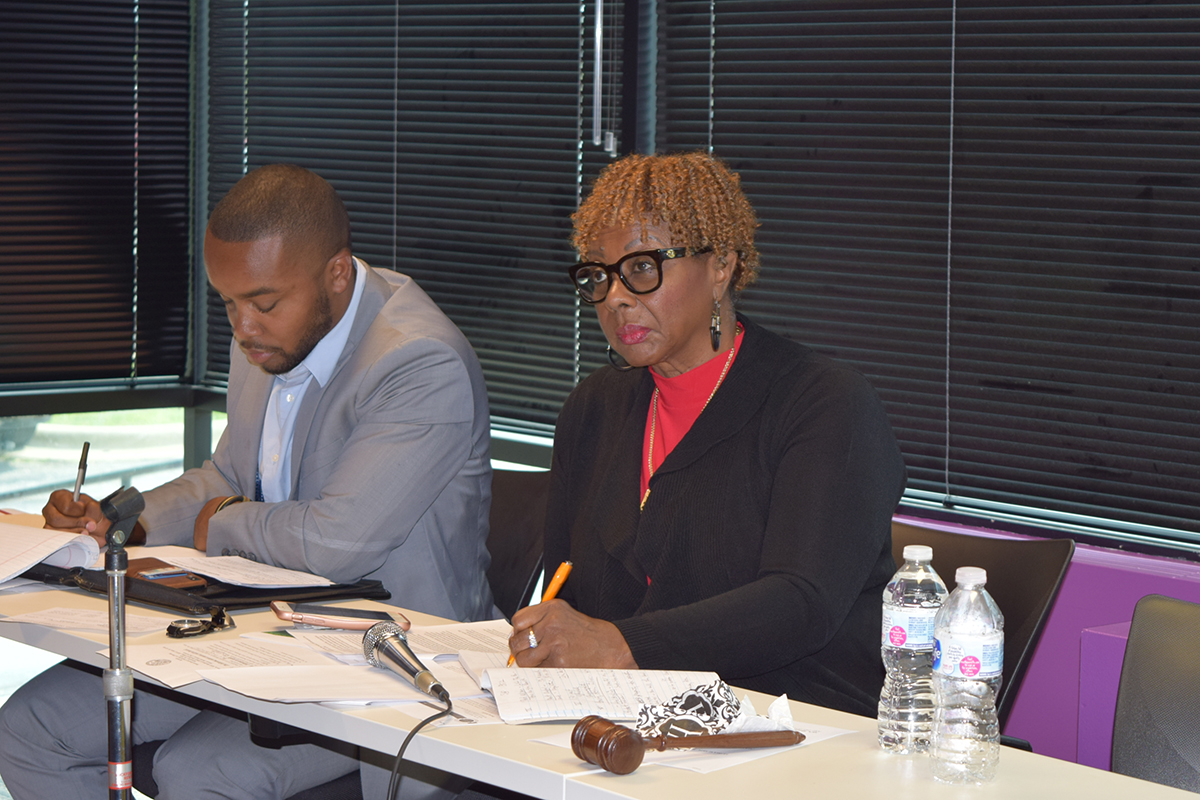Hunter lays out plan to prevent sudden CPS school closures
- Details
- Category: News
 CHICAGO – State Senator Mattie Hunter (D-Chicago) held a press conference this morning at Harper High School to discuss a new plan to provide support to under-enrolled Chicago Public Schools.
CHICAGO – State Senator Mattie Hunter (D-Chicago) held a press conference this morning at Harper High School to discuss a new plan to provide support to under-enrolled Chicago Public Schools.
“As we’ve seen in the news lately, CPS has been closing school doors without notice and leaving thousands of students without a neighborhood school to go to or require them to travel to a different, consolidated school,” Hunter said. “And the worst part is that CPS is making these decisions without engaging communities. That is unacceptable.”
Hunter was joined by State Rep. Sonya Harper (D-Chicago), Cecile Carroll of Blocks Together and local CPS students and parents affected by recent school closure announcements. They discussed a new plan that was signed into law this past summer, requiring more long term planning, transparency for construction spending, community input and district collaboration to prevent inefficient and disruptive school closings. It also requires CPS to provide more notice and information on the status of schools.
“I am happy that my colleagues in the General Assembly recognize that we need to be fighting to prevent sudden school closures in Chicago,” Hunter said. “When CPS closes a school, it affects us, our neighborhoods and our communities. The very least that CPS can do is provide more information to everyone, so that we can all work together to offer input and make the best decisions for our students.”
Hunter: More work to be done on police-community relations after Van Dyke verdict
- Details
- Category: News
 SPRINGFIELD – State Senator Mattie Hunter (D-Chicago 3rd) issued the following statement after police officer Jason Van Dyke was found guilty of second degree murder in the 2014 shooting of Laquan McDonald:
SPRINGFIELD – State Senator Mattie Hunter (D-Chicago 3rd) issued the following statement after police officer Jason Van Dyke was found guilty of second degree murder in the 2014 shooting of Laquan McDonald:
“I know I join many of you in breathing a sigh of relief that the officer who murdered Laquan McDonald four years ago was brought to justice today.
Nothing can take away the pain his family feels, and my deepest sympathies are with them.
Justice may have prevailed today, but we still have much work to do in improving the damaged relationship between law enforcement officers and the communities they serve.
In the coming days and weeks, please be thoughtful about the small acts of peace and progress you can make. And I encourage you to sit down with your family, friends and community members and have conversations about how to improve the relationship between law enforcement officers and citizens of Chicago.”
Hunter holds hearing in Chicago to discuss solutions to the affordable housing crisis
- Details
- Category: News

CHICAGO – In her third stop on a statewide tour, State Senator Mattie Hunter (D-Chicago) convened the Senate Special Committee on Housing Thursday to look for ways to address the issues of lack of affordable housing and rising rent prices.
“It’s not hyperbole to say that we face a crisis,” Hunter said. “Skyrocketing housing costs affect our entire state and all types of communities. We know that the demand is great, and that’s why we’re on this tour to find new and innovative solutions to help preserve affordable housing options.”
More than 200 people attended the Senate Special Committee in Chicago to weigh in on lifting a statewide ban on rent control.
Currently, Illinois is one of 35 states across the country with a rent control ban. Hunter discussed her legislation which would lift the 1997 ban on state and city governments enacting any measure that would regulate or control rent prices on private property.
Hunter’s measure would establish elected rent control boards across the state, divided into six regions. The boards would regulate rent for households of specified income levels and could restrict annual rent increases to the rate of inflation. They could also create rules on how much notice must be given before rent is increased and would oversee the creation of a reserve account for landlords to pay for repairs and building improvements.
“Although this bill is focused on rent control, it is only one of the options that we’re pursuing,” Hunter said. “My overall goal with these hearings is to gather as much information as we can, so that we have all the tools we need to move forward, and craft a legislative solution that creates strong communities and expands access to safe, decent and affordable housing.
Hunter continues discussion on affordable housing and rent control in Rockford
- Details
- Category: News

“The demand for affordable housing in Rockford and throughout the state is great,” Hunter said. “It’s more important than ever to create affordable housing opportunities in order to boost economic mobility, reduce poverty and homelessness, improve health outcomes and strengthen the economy.”
Hunter is looking to make low-income housing in Rockford more affordable by lifting the state’s ban on rent control. Currently, Illinois is one of 35 states across the country with a rent control ban.
Hunter discussed a bill she has in the Illinois Senate which aims at lifting that ban, which has been in place since 1997 to prevent state and city governments from enacting any measure that would regulate or control rent prices on private residential or commercial property.
Hunter’s measure would establish elected rent control boards in six regions. The boards would regulate rent for households of specified income levels and could restrict annual rent increases to the rate of inflation. They could also create rules on how much notice must be given before rent is increased and would oversee the creation of a reserve account for landlords to pay for repairs and capital improvements.
More Articles …
Page 97 of 143


